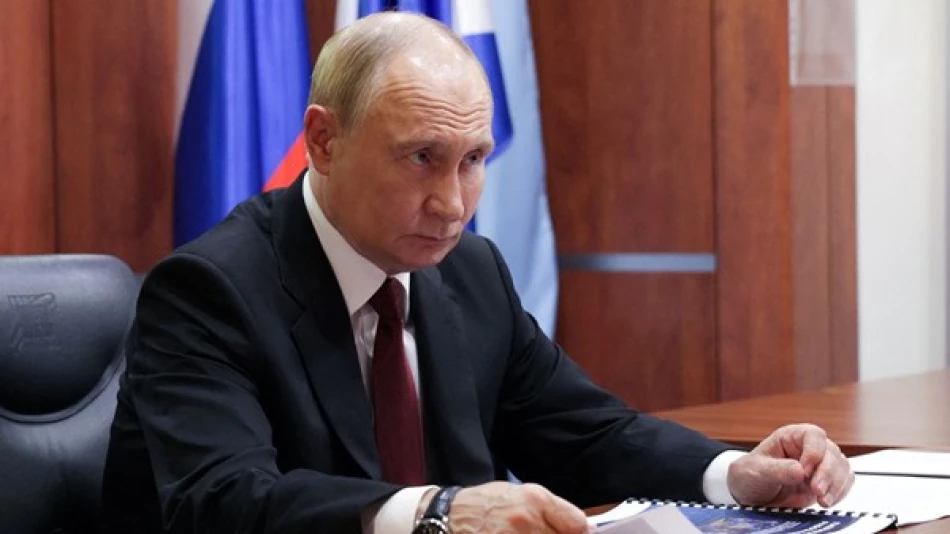
Putin Discusses Controversial Alaska Summit with Trump in Exclusive Statements
Putin Signals Diplomatic Opening After Alaska Summit with Trump on Ukraine Crisis
Russian President Vladimir Putin has characterized his Friday meeting with US President Donald Trump in Alaska as "timely and extremely beneficial," marking a potential diplomatic breakthrough in efforts to resolve the Ukraine conflict that has persisted for three and a half years. Putin's positive assessment, delivered during a televised Kremlin meeting, suggests both superpowers may be positioning for serious negotiations to end one of the most destabilizing conflicts in recent European history.
A Strategic Venue for High-Stakes Diplomacy
The choice of Alaska as a meeting location carries symbolic weight, representing neutral ground between the two nuclear powers. Putin described the talks with Trump as "constructive and characterized by honesty", language that diplomatic observers typically interpret as indicating substantive progress rather than mere protocol exchanges.
The Russian leader emphasized Moscow's respect for Washington's position on the Ukrainian conflict, while reaffirming Russia's commitment to pursuing a peaceful resolution. This acknowledgment suggests a potential shift from the entrenched positions that have defined the conflict since its escalation.
Implications for Global Markets and Energy Security
Any genuine progress toward resolving the Ukraine crisis would have immediate ramifications for global commodity markets, particularly energy and agricultural exports. European natural gas prices and grain futures have remained volatile throughout the conflict, with resolution potentially stabilizing supply chains that affect billions of consumers worldwide.
Defense contractors and reconstruction companies are likely monitoring these diplomatic developments closely, as a peace agreement would reshape both military procurement priorities and create massive infrastructure rebuilding opportunities in Ukraine.
Historical Context: When Superpowers Negotiate
Putin's conciliatory tone echoes diplomatic breakthroughs from previous decades, when US-Soviet summits in neutral locations produced unexpected agreements. The 1986 Reykjavik Summit between Reagan and Gorbachev, while initially appearing unsuccessful, laid groundwork for subsequent arms control treaties.
However, modern geopolitical realities differ significantly from Cold War dynamics. Today's conflict involves not just bilateral US-Russia relations, but complex NATO commitments, European Union interests, and Ukrainian sovereignty claims that cannot be easily negotiated away.
What This Means for Regional Power Dynamics
A US-Russia accommodation on Ukraine would fundamentally alter European security architecture and potentially reduce NATO's eastern expansion momentum. European allies, particularly Poland and the Baltic states, will be watching closely for any signs that their security concerns might be subordinated to broader US-Russia détente.
China's position also becomes crucial, as Beijing has maintained careful neutrality while supporting Russia economically. Any US-Russia rapprochement could complicate China's strategic calculations and potentially isolate it diplomatically if successful Ukraine negotiations demonstrate effective multilateral problem-solving without Chinese participation.
The Path Forward: Optimism Meets Reality
While Putin's positive assessment creates diplomatic momentum, translating summit discussions into concrete agreements remains challenging. Previous attempts at Ukraine peace negotiations have foundered on fundamental disagreements over territorial sovereignty, security guarantees, and reconstruction responsibilities.
The real test will come in the coming weeks, as both sides translate summit commitments into specific policy changes and whether Ukraine's government, which was notably absent from the Alaska meeting, accepts any framework developed by the superpowers.
Most Viewed News

 Layla Al Mansoori
Layla Al Mansoori






